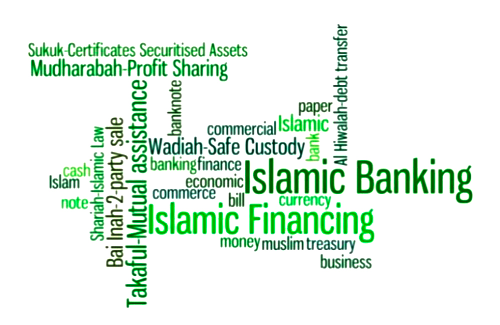
Islamic Finance and Food Security in Ghana
Food security has been of great concern to mankind since creation as man’s survival on earth is largely a function of uninterrupted access to reasonable stock of nutritious food.
Advertisement
Hunger and starvation have caused debilitating effects to some nations particularly Africa, making governments take critical look at the concept of food security and putting mechanisms in place to have sufficient and reliable hold on food over all time to its population.
What then is food security? The World Food Summit in 1996 defined food security as, “When all people at all times have access to sufficient, safe, nutritious food to maintain a healthy and active life.”
1983 famine
Ghana went through turmoil in 1983 when bush fires ravaged great portions of plantations making Ghana suffer starvation. Ever since, various governments in Ghana have put in measures to ensure adequate and accessible supply of food but these measures have still not yielded the desired results. Inadequate food supply coupled with distribution channels and marketing impediments have largely contributed to small stock piles of food and significantly contributes to high food inflation in Ghana.
Farming, transportation, distribution and marketing of food stuffs entail great finance. Many individual and/groups have encountered challenges in accessing finance to fund their farming produce. Banks and financial institutions frown on financing agriculture due to uncertainty in their operations. This disinterest can be cured through the means of Islamic finance. We, therefore, argue that Islamic finance is a tool in achieving food security in Ghana.
Islamic Finance
Islamic finance is an alternative medium of finance modelled along Islamic principles of stewardship, integrity, honesty, sincerity, piety and commitment to one’s creator. It is a financial intermediation that shuns and abhors interest in its dealings but places emphasis on profit sharing. The outstanding contracts designed by Islamic Finance include Murabaha, Mudharaba, Musharaka, Itisna, Salam and Ijara contracts.
Murabaha is a contract based on cost plus mark-up; Mudharaba entails a contract of two or more, where the contributors of the capital (i.e. Rab al Mal) partners with the expertise of another to set up a business. In this scenario the profits arising from the business is shared according to predetermined ratios but losses are solely born by the capital provider.
A Musharaka contract is an enhancement of the Mudharaba contract but in this case, both capital and expertise are provided by two or more parties to the contract. Profits arising from Musharaka contracts are shared according to prearranged ratios and losses born in relation to capital contribution. The contract of Itisna relates to manufacturing and construction projects which invariably are projects in stages of completion. The last of the nominate contracts is Ijara and it operates similar to conventional operating lease but without interest.
Sukuk is another medium by which governments and large companies/financial conglomerates raise funding for their operations of acquiring assets. It operates in similar way like conventional bonds but detaches itself from interest characteristic of conventional bonds. Holders of Sukuk receive periodic payments from the profits of the project for which it is set up. In the Sukuk arrangement,a special purpose vehicle (SPV) is incorporated that sells sukuk to investors for originator haven initially sold the underlying legal interest in an asset to the SPV which holds it trust for the investors. Profits emanating from the project are used to make periodic payment to sukuk investors.
The concern of this article is the application of Salam contract to food security in Ghana. Salam contract arises where an Islamic Financial Institution (IFI) enters into a contractual agreement with a farmer by granting her/him an advance payment for the farmer to supply amount of food stuff or crop for the IFI. The price is agreed between the two parties at the contract date. In the event the farmer is unable to produce and supply the agreed quantity of food stuff or crop, she/he is bound to buy from the market and make up the short fall. The Salam contract has been further developed into what is called the parallel salam contract. Whilse the IFI institution has a binding contract with the farmer to deliver a specified quantity of crop or produce, the IFI can also enter into another contract with a third party say a manufacturing company that has uses for the specific produce. The Manufacturer would grant the IFI payment in anticipation of the delivery of the produce from the farmer. The IFI would have sold the produce in advance and received its profit.
Application of salam by banks
The Ministry of Inner City should collaborate with the Ministry of Food and Agriculture to guarantee funds granted by banks to farmers producing food stuffs. The parallel salam model should be adopted in this kind of arrangement. The Ministry should identify companies in the manufacturing sector that use yam, cassava, plantain, millet, maize, beans and other cereals as their raw materials such that upon production should be taken over.
While exploring the parallel Salam, the ministry can also consider the ijara concept alongside by making arrangement for farmers to acquire inputs and other durable farming equipment such as tractors, combined- harvester and other relevant equipment.
It is believed that this model if adopted will contribute largely to enhancing food supply and help reduce food inflation. In a country where oil and gas has been discovered in commercial quantities, planned efforts to sustain agriculture and manufacture production is very necessary. This will help Ghana to avoid the pitfall of the Dutch disease as was encountered by other oil-producing countries particularly Nigeria which has seen a sharp decrease in cocoa production after the oil find.
Writer’s e-mail:



